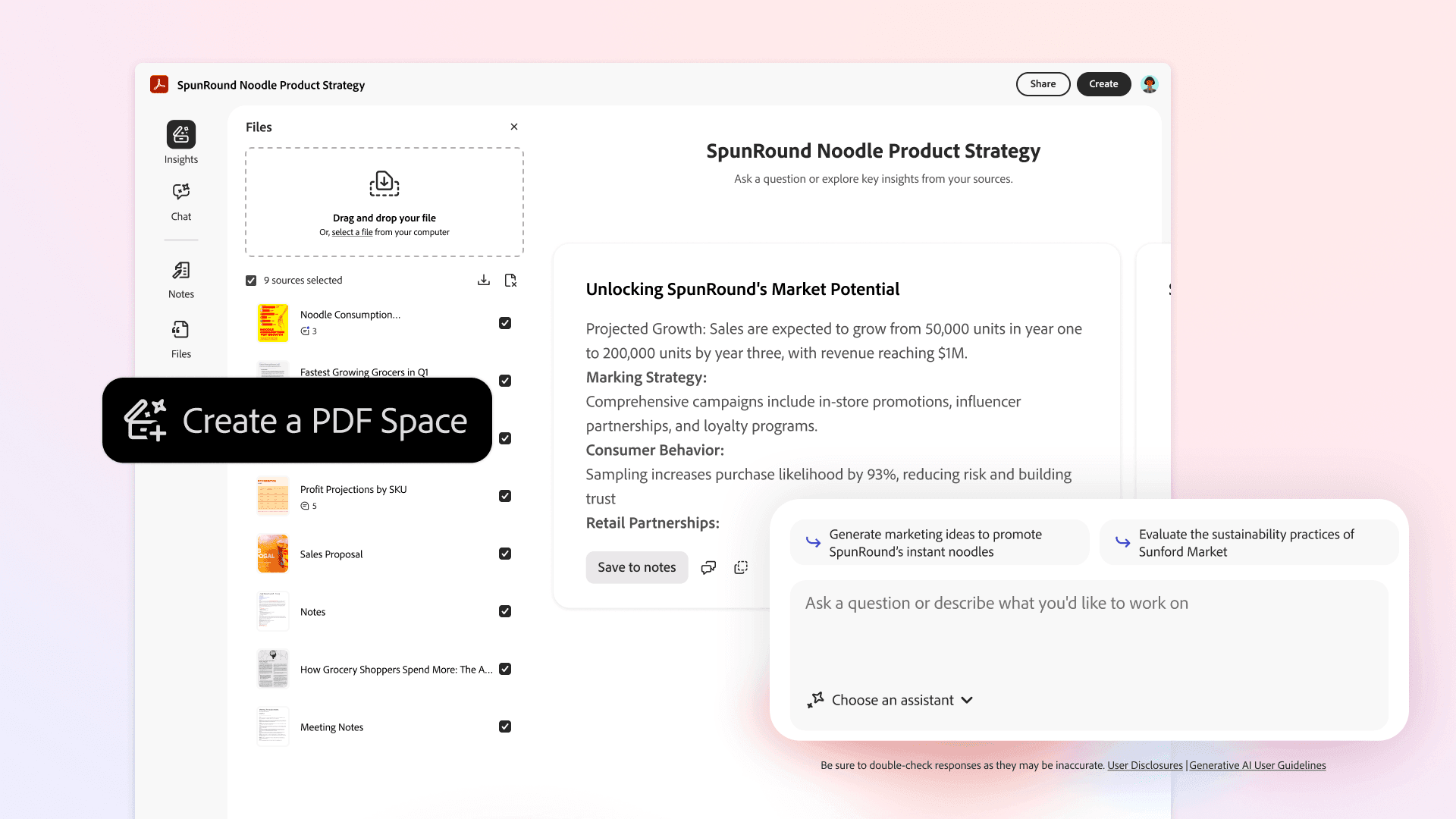Adobe just transformed its 30-year-old PDF business into something entirely different. The company launched Acrobat Studio today, a collaborative workspace platform that combines PDF tools with AI agents and content creation, signaling Adobe's aggressive push beyond document management into full productivity suites that compete directly with Microsoft 365.
Adobe just made its boldest move yet to reinvent the humble PDF. The company launched Acrobat Studio today, a platform that transforms what's been primarily a document viewer into a full collaborative workspace powered by AI agents and integrated content creation tools. The timing couldn't be more strategic as enterprise teams increasingly demand unified platforms that eliminate app-switching overhead.
The new platform represents Adobe's most direct challenge to Microsoft 365's dominance in enterprise productivity. Acrobat Studio allows teams to upload up to 100 documents across multiple file formats - including Microsoft 365 files and web pages - into collaborative environments Adobe calls "PDF Spaces." These spaces function as what the company describes as "conversational knowledge hubs" where AI agents can analyze, synthesize, and generate insights from aggregated content.
"We're evolving Acrobat beyond being a tool just for reading and editing PDFs," Adobe positioned the launch, explicitly acknowledging the platform's expansion into territory traditionally dominated by productivity giants like Google Workspace and Microsoft 365.
The AI integration builds on Adobe's previous generative AI features released for standard Acrobat software earlier this year. But Acrobat Studio's AI agents go deeper, offering customizable automation that can generate citations, provide recommendations, and create visual assets directly within the workflow. Teams can view and sign contracts, consolidate research notes, and transform data into infographics using built-in Adobe Express tools without leaving the platform.











